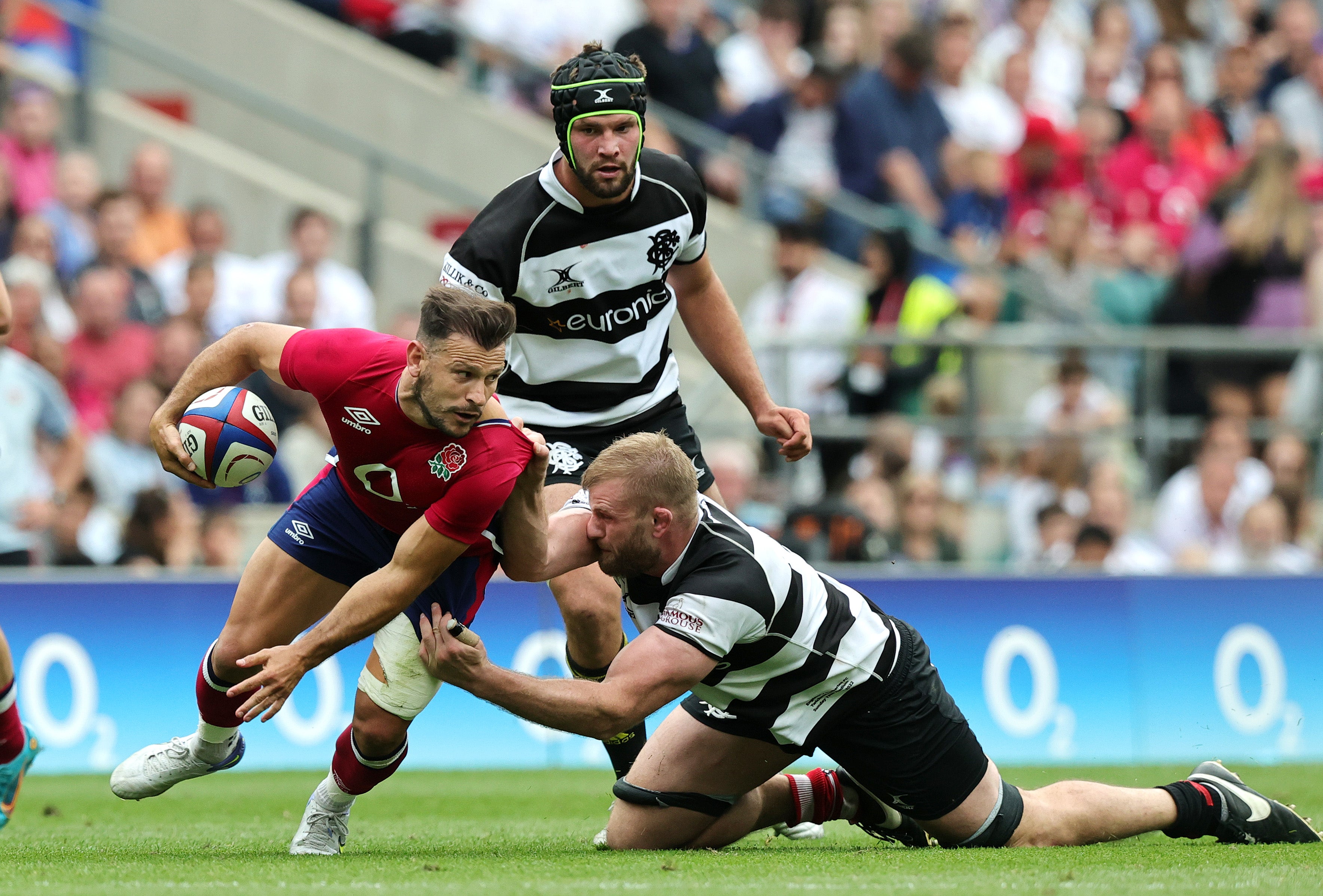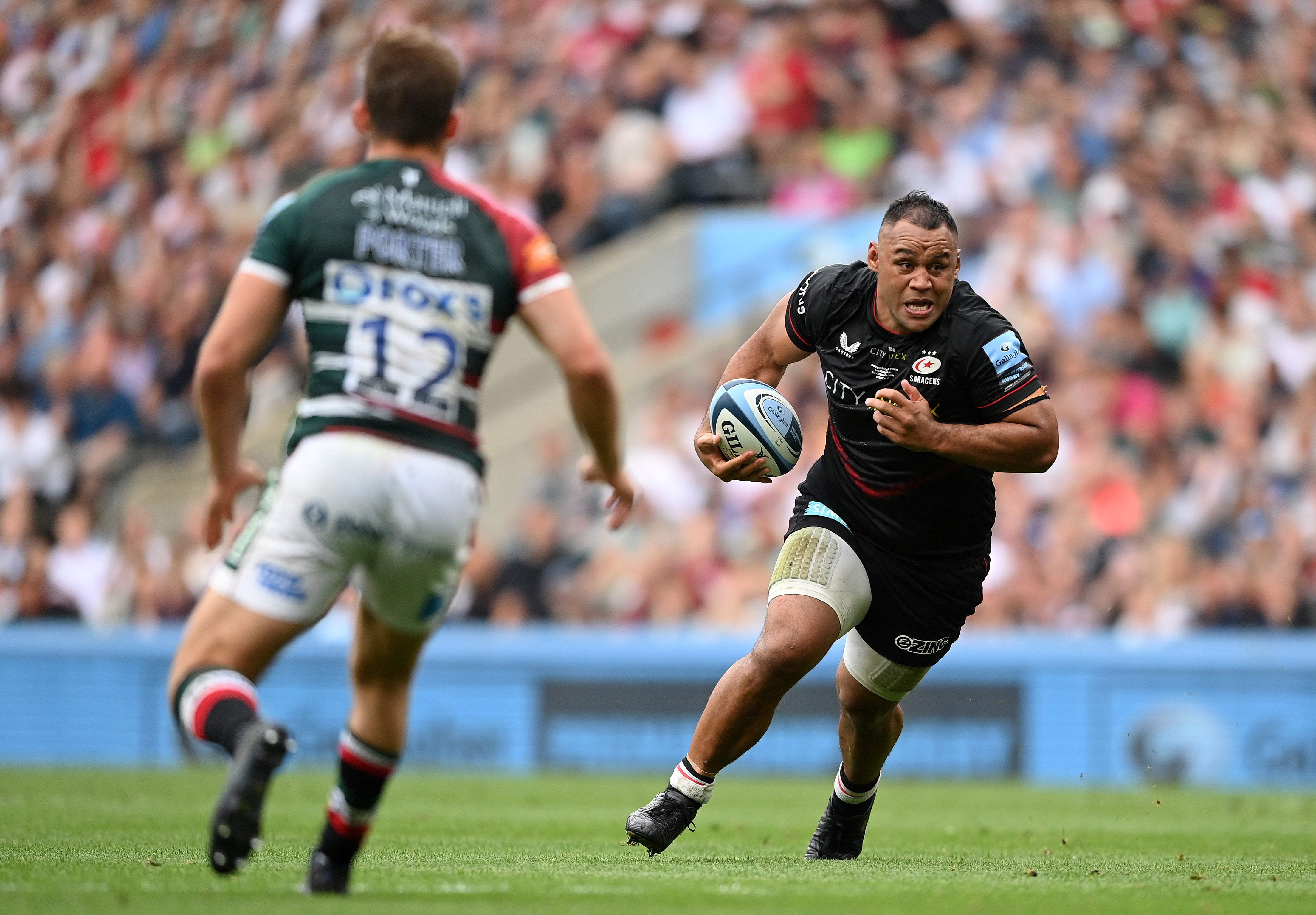
The Eddie Jones England project is hanging by a thread. ‘Glorified friendly’ or not, shorn of Leicester and Saracens players due to the Premiership final or not, shipping 51 points and crumbling to a 31-point defeat - the heaviest of the Jones era - at Twickenham, against a scratch side who spent their preparation week on the sauce in Monaco and played 45 minutes with 14 men, must set alarm bells ringing.
Although, given that the half-hearted initial RFU review into Jones’s England following the 2022 Six Nations concluded that they were “encouraged by the solid progress the team has made during this Six Nations campaign”, it probably won’t. As a reminder, the “strong positive steps forward” the RFU witnessed came in a championship where England won two and lost three games while scoring eight tries, which was 12 months after a Six Nations where England won two and lost three games while scoring 12 tries. Solid progress, indeed…
In fairness, calling this version of the Barbarians a ‘scratch side’ is a slight misnomer. They were more France-lite – 10 Frenchmen in the starting XV, led by the Grand Slam-winning coaching duo of Fabien Galthie and Shaun Edwards, and, much like Les Bleus did during the Six Nations three months prior, they completely outclassed England.
They retained plenty of the exuberant, expansive, run-it-from-anywhere-rugby joie de vivre that typifies the Baa Baas but this was also a well-drilled, professional outfit that ensured the spectacle was much more ‘proper’ Test match than exhibition. A procession of England props – Bevan Rodd, Will Collier, Patrick Schickerling – were obliterated at scrum-time, the lineout helmed by Jack Walker fell to pieces, careless interceptions were thrown, kicking from the tee was wayward, the home attack looked blunt and shapeless, while the home defence was repeatedly cut to shreds with disturbing ease.
The visitors led by three points when Will Skelton became the first man in Barbarians history to receive a red card just before half-time. From there, with a man disadvantage, they outscored England 38-10.
Successive sub-par Six Nations – albeit with an impressive autumn series in between – and now a record defeat to an invitational team have raised urgent questions heading into next month’s tour of Australia. And in an attempt to salvage a summer that is threatening to completely derail his tenure barely a year before the World Cup, Jones has looked back to the future with his squad selection.
Having, for so long, ignored the growing mountain of evidence that Danny Care was still the best scrum-half in the country - especially at providing the quick ball this England attack is sustained by – the head coach finally relented and ended the Harlequins No 9’s four-year international exile, with a taster in the Baa Baas game followed by selection for the full tour Down Under.

Also back into the fold come the Vunipola brothers – Mako and Billy – who were jettisoned following the 2021 Six Nations, with Jones citing the need to refresh the squad and believing their time at international level after two World Cup cycles had run its course. A brilliant season with Saracens at club level for both has been rightly rewarded.
That trio bring 212 England caps worth of experience into camp and while returning to once-discarded players might look like a step backwards, it shows a refreshing pragmatism from Jones.
Of course, his hand has also been forced slightly. Would Care have received the call but for the absence of Ben Youngs - who recently experienced family tragedy with the death of Tiffany Youngs, the wife of his elder brother Tom – leaving the side without a veteran scrum-half? Would the Vunipolas have been summoned if not for a complete dearth of ball-carriers due to injuries to Sam Simmonds, Alex Dombrandt and Manu Tuilagi among others? Or would Mako be staying at home this summer if Kyle Sinckler’s injury hadn’t removed a world-class prop from the mix?
Whether by choice or not, they will fulfil vital needs against an Australia side that is eminently beatable – as proven by the 32-15 demolition job last November.
Care zipping the ball from the base of the ruck and sniping at the edges is exactly what this England attack requires, Mako Vunipola is a sorely-needed front-row carrying threat and steadying pillar at scrum-time, while Billy Vunipola has looked rejuvenated at Saracens this term. His 25 carries, remarkable fleetness of foot and relentless drive forward in the Premiership final on Saturday was the icing on the cake of a sumptuous season.

“Billy needed to find his best. He wasn’t at his best in the last Six Nations he played with us, he was a bit up and down,” Jones explained. “I asked him to go away and find his best and I think that consistently for Saracens he has been close to that. In the final he was exceptional, he looked like a Test No 8. He has found his best now and deserves to be back in the team.” England could certainly use a Test No 8.
The return of these players, mixed with eight uncapped tyros in the squad of 36, does provide reason for optimism, as does the fact that if you dig below the surface, tilt your head and squint slightly, the roots of what Jones is trying to achieve start to become visible.
An innovative attacking structure that is predicated on position-less, formation-less rugby rather than the traditional pods of forwards stretched out across the pitch gives England almost limitless options when (if) it functions and should cause defences headaches but it’s a work in progress that falls apart when the pivot - Marcus Smith – gets sucked into contact and can’t run the next play. There is no traditional structure to fall back on and attacks generally peter out.
That’s why the return of Owen Farrell at inside centre, giving a double pivot at the 10-12 axis, and a second game-managing option when Smith is out of commission, will revolutionise how England look in attack. Or so Jones hopes.

It’s no coincidence that the one game Smith and Farrell have been unleashed together was that 32-15 triumph over, coincidentally, Australia last November - the best England have looked in this World Cup cycle. If the Jones era is hanging by a thread, the Smith-Farrell axis could be the tailor that strengthens the cord.
Jones’s entire international coaching career is also built on peaking at World Cups: leading Australia to the 2003 final, being technical advisor to the 2007 champion Springboks, engineering the biggest upset in rugby history with the 2015 Brighton Miracle and then taking England to the 2019 final. Targeting the William Webb Ellis trophy is done at the expense of almost every other result but with just 14 months until the 2023 tournament begins, a whitewash Down Under at the hands of his homeland might just prove terminal for the 62-year-old before he can make it to France.
To prevent that, Jones has fired up the DeLorean and is going back to the future to save his summer.







